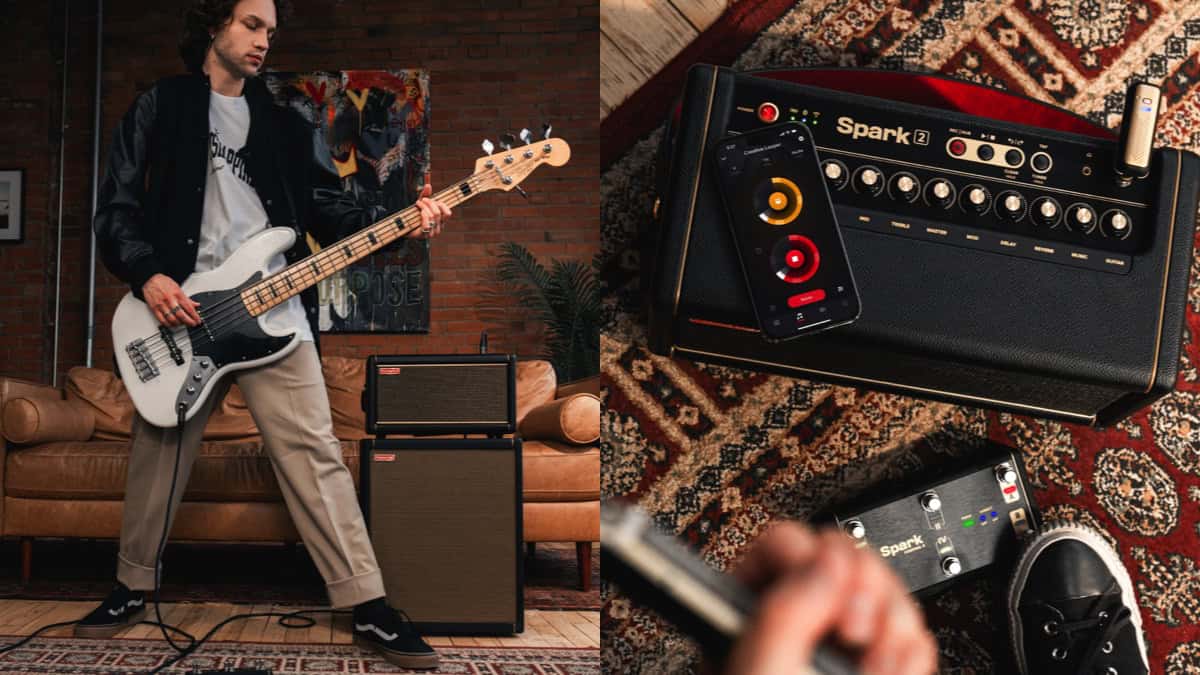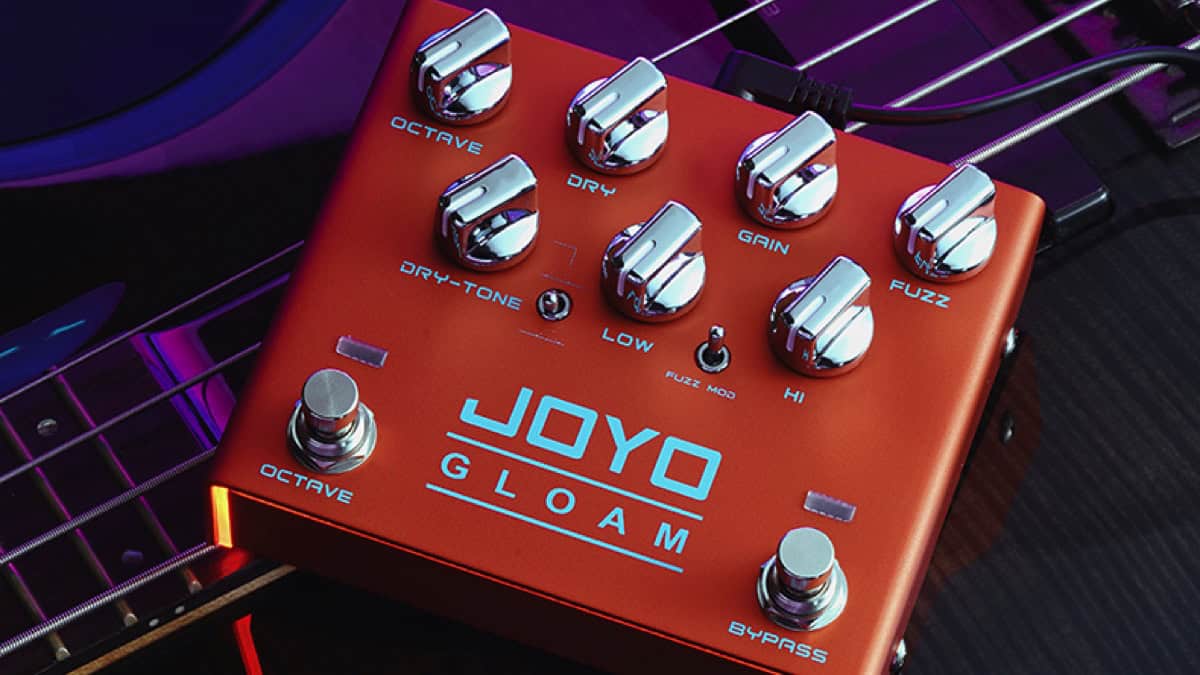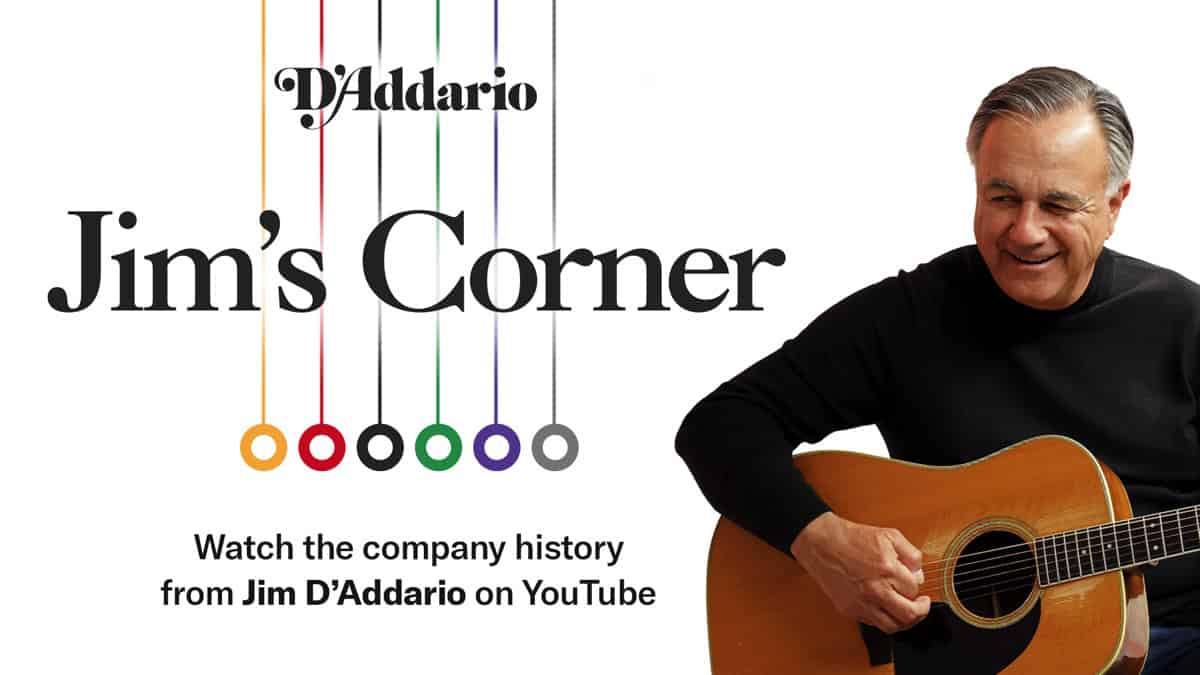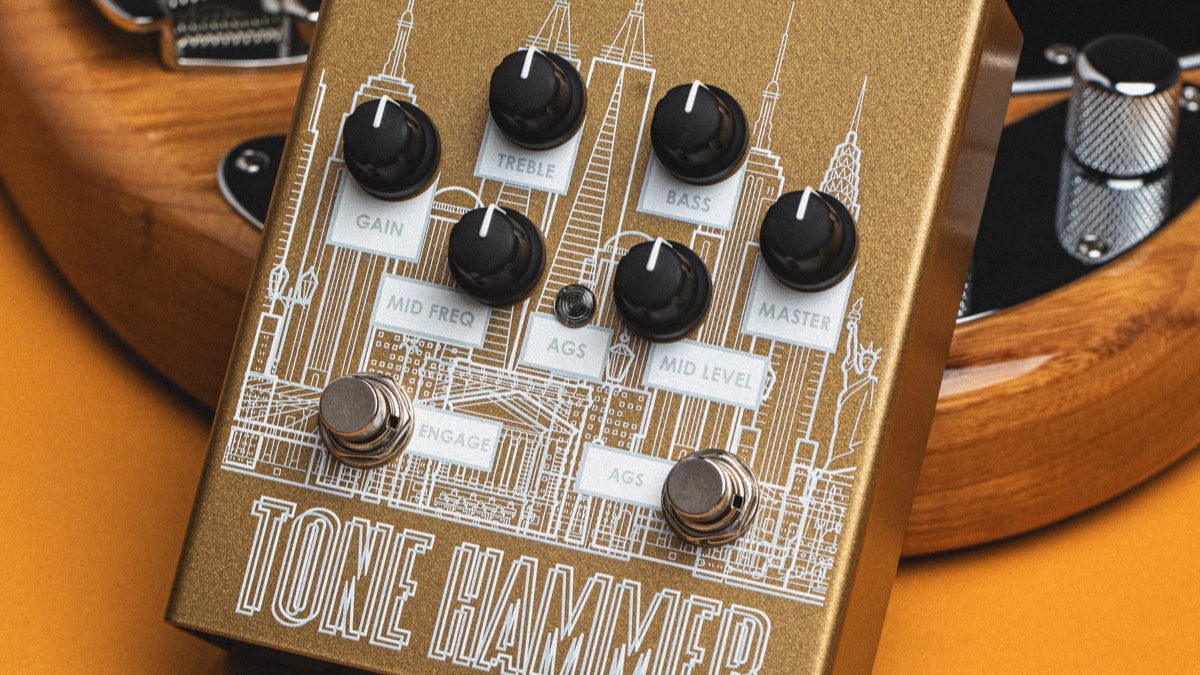Latest
No One is a Prophet in His Own Land…. By Igor Saavedra


Obviously this old proverb doesn’t only apply exclusively to bassists, musicians or artists, it really applies to almost everybody in this world, no matter what this person does for a living.
The bigger problem is that we the artists and mostly we the musicians have to deal with a variable called “subjectivity”, which is something that does not apply in the same way to sports or science. Let’s set an example for an athlete from any country that officially beats the 100mts dash world record with a 9.49 seconds time or a scientist that invents the absolute cure for cancer (you take a pill and in 5 minutes you are cured, no side effects). It’s obvious that these guys won’t have to wait for any “subjective opinion” from their own country, so to be glorified and exalted to the level of living legend; their native countries and towns will reflect the same opinion and admiration as the rest of the world. But in the case of an artist, it’s quite different, even if you get to win a Grammy or an Oscar there’s a lot of people that don’t give any credit to this kind of artistic awards and prizes. As you can see, we submerge ourselves into the deep and dark waters of subjectivity.
What are the exact reasons why this subjectivity always shows a very clear statistical pattern in which the local environment seems not to appreciate the careers of their very own artists as much and as easy as the foreign environments related with that artist?
IMHO the reasons are completely anthropological, and are mostly based on the fact that we, the humans, have always embraced the Mysteries and the Myths as fundamental components of our very deep being. When somebody has a background that we don’t fully know and understand we have the tendency to unconsciously assign mystical qualities to him/her, in fact we need it, and in my opinion that’s one of the main reasons why the religions exist.
The old prophets, those ancient wise men that walked hundreds of miles from town-to-town spreading their own truths… we can clearly see that their “convincing effect” on the different town’s populations was directly proportional to the distance from their native towns; the farther any town was from their native town the more they drew attention and influenced the people, hence the proverb, “No one is a Prophet in his own land”. I could cite tons of historical examples, but this column is obviously not about religion, anyway I’m sure that you got my point.
As you can imagine, I travel a lot. I’m playing out of my country for almost 200 days every year, and it always amazes me how frequently I’m able to see famous and amazing musicians playing in their native towns (or the towns where they lived for many years) for about 30 people in a local bar, very different to when I see them playing overseas in front of hundreds and thousands of people for very different money. The interesting phenomenon is that when these musicians actually live in any big, important and developed city/country, in most of the cases any “Secondary foreign fame” seems not to positively affect the validation and credibility by the people from their very own towns. With due respect to Liechtenstein, the fact that a New York native musician could be a music star in Liechtenstein will mean nothing or almost nothing to the NY audience… so again, “No one is a Prophet in his own land”.
But, what if we reverse that example? It seems clear to me that the fact that a Liechtenstein native musician could be a major music star in New York will indeed mean everything to the Liechtenstein’s audience, and even more, as it will surely be a major success to the whole country! So this specific situation seems to not comply with the hypothesis, which is the title of this article, but it doesn’t?
I don’t think so… I call this, “The Certification Effect”, and in simple words it means that the audience of any small town or country absolutely needs the indispensable validation from any “Certification Agency” in order to decide if they are going to credit and support their native artists in their towns, as they deserve. That “Certification Agency” is indeed any bigger country, town or musical environment, which is “supposed to know more”. This gets to the extreme of not only happening between countries but also inside the countries, i.e. being great in Alaska means nothing to California, but being great in California means a lot in Alaska. I’ll tell you up-front that I think this is completely stupid, but unfortunately it’s the crude reality, so again this never fails, “No one is a Prophet in his own land”.
The reason why I think this is stupid is quite simple, and it’s because at the end what really matters is playing music, the skills have no country or town, you play good or you don’t, you play clean or you don’t, you play in tune or you don’t, you play the right notes or you don’t, you play a lot of techniques or you don’t, you play a lot of musical styles or you don’t, you’re able to groove and play pocket or you aren’t, you are innovative or you aren’t, you know about theory or you don’t, etc. What the hell does the place you come from or the place you are playing have to do with it?
What to do?
We the musicians just need to go after people’s ears, just think that the whole world is waiting for your music and for what you have to say. Play for anybody who wants to listen to your music, forget about your own town’s opinion; your town’s feedback is perhaps the worst place to measure your musicality and your “success” (if that really matters). They will always be late for you. I know what I’m saying here because when it comes to this, my country has probably been the most ungrateful country with its artists that I have encountered in my whole life… no contest… and I say this because this has been my direct and personal experience as an artist.
I hope you liked this article, please leave your comments and share your opinions, as they are very important to us. What have been your personal experiences in your own country?
See you in the next one!
Gear News
Gear News: Positive Grid Launches Spark 2

Positive Grid launches Spark 2, the next evolution of their cutting-edge smart guitar practice amplifiers and Bluetooth® speakers.
Engineered for acoustic, electric guitar, and bass, Spark 2 delivers an immersive practice and playing experience. Enjoy detailed sound and an all-new upgraded speaker design powered by Positive Grid’s exclusive Sonic IQ Computational Audio technology. With an onboard creative looper, optional battery power, and intuitive AI features for tone exploration and practice, Spark 2 is the gateway to a musical experience that goes beyond expectations.
Proprietary Audio and Advanced Technology
Spark 2 represents a leap forward in amplifier design. It integrates a new DSP amp modeling engine with double the processing power, and at 50 Watts, it packs 25% more volume than the original. Positive Grid’s proprietary Sonic IQ Computational Audio delivers incredibly detailed and dynamic sound. New HD amp models, enhanced by multi-band dynamic range compression and virtual bass augmentation, redefine the sonic landscape.
Equipped with two premium FRFR speakers and reflex ports, Spark 2 offers wide stereo imaging and broader frequency response, ensuring refined bass and clear, immersive sound.
Built-In Creative Looper
Spark 2’s built-in Groove Looper features hundreds of hyper-realistic drum tracks. From basic loops to multi-layered soundscapes or the ultimate jam session, this intuitive tool inspires endless creativity. Onboard amp controls provide quick, on-the-go looping functionality.
AI-Powered Tone and Smart Jam
Spark AI revolutionizes tone exploration. Describe any desired tone in the Spark app – from practical to outlandish – and Spark AI will suggest tones to audition or download. The more it’s used, the smarter it gets, delivering the perfect sound.
Additional smart features make it easy to practice, learn new songs and improve playing skills. Smart Jam listens to the user’s playing style and generates accompanying bass and drum parts, while Auto Chords analyzes any song streamed and displays the guitar chords in real time, to make learning and practicing new songs easier than ever.
Enhanced Hardware Design and Portability
Spark 2 allows for storing up to eight customizable presets directly on the amp for quick access to favorite sounds. Perfect the tone with large, visible onboard controls for looper, EQ, gain, reverb, and more.
Designed for convenience, an optional rechargeable battery provides up to 12 hours of playtime for on-the-go sessions. The new double-thick strap and durable build ensure easy and secure transport. Spark 2 is also Bluetooth® ready, allowing for music streaming and jamming along with favorite tracks anytime, anywhere.
Multiple Outputs and Advanced Features
Spark 2 offers versatile connectivity with a headphone out for private practice, stereo line outs for external audio sources, and a USB-C port which enables it to function as an audio interface. WiFi-enabled, Spark 2 allows convenient over-the-air firmware updates, keeping the amp up to date with the latest features and improvements.
“I’ve used a ton of practice amps while touring the world for over 38 years and it was always just a technical, bland exercise,” says guitar virtuoso, singer-songwriter and producer Nuno Bettencourt. “Spark 2 is like taking Madison Square Garden wherever you go – epic and versatile.”
Color Options
Available in Pearl or Black finish with a dark weave grille and premium finish.
Special Event, Upgrade Pricing & Availability
Join the special live premiere event featuring Nuno Bettencourt and surprise guests on August 1, 2024, at 8:00 am PT/11:00 am ET. Visit positivegrid.com/pages/livestream for more details and to sign up for a reminder.
Regularly USD $299, Spark 2 will be available at special early bird pricing during the pre-order period. Registered Spark 40 owners can also receive exclusive upgrade pricing.
For more information and to sign up for pre-order alerts, visit positivegrid.com/products/spark-2.
Gear Reviews
Gear Review: Exploring the Joyo Gloam – Sub Octave Fuzz Pedal for Bass

A review of the Joyo Gloam – Sub Octave Fuzz Pedal for Bass
Disclaimer: This pedal was kindly provided by Joyo for the purpose of this review. However, this does not influence our opinions or the content of our reviews. We strive to provide honest, unbiased, and accurate assessments to ensure that our readers receive truthful and helpful information.
Introduction: The Joyo Gloam is a sub-octave fuzz pedal specifically designed for bass players, combining modern sub-octave effects with rich fuzz tones. With two independently controlled circuits, the Gloam aims to provide a versatile range of sounds, from deep, aggressive fuzz to Moog-like synth effects. This review will explore the Gloam’s specifications, controls, and overall performance, highlighting both its strengths and areas for improvement.
Specifications:
- Dimensions: 130 * 110 * 50 mm
- Weight: 403g
- Working Voltage: DC 9V
- Controls: The Joyo Gloam features a comprehensive control set designed to provide bassists with a wide range of tonal options:
- Dry Tone: Adjusts the tone of the clean signal.
- Dry Volume: Controls the volume of the clean signal.
- Sub Octave Volume: Adjusts the volume of the sub octave signal.
- Gain: Controls the amount of gain in the fuzz circuit.
- Fuzz: Adjusts the intensity of the fuzz effect.
- Bass: Controls the bass frequencies in the fuzz circuit.
- Treble: Adjusts the treble frequencies in the fuzz circuit.
- Fuzz Mode Switch: Switches between two different fuzz modes.
- Dry Tone Frequency Switch: Selects between two different frequency points for the dry tone.
Performance: The Joyo Gloam excels in its dual-circuit design, offering both a sub octave and a fuzz channel that can be controlled individually. However, it’s important to note that the octaver cannot be used without the fuzz circuit activated; the only way to solo the octaver is by turning down the fuzz while both channels are engaged.
Fuzz Circuit: The fuzz circuit includes standard controls such as gain, volume, bass, and treble, along with a fuzz mode switch that toggles between two distinct fuzz modes. While one of the fuzz modes is highly usable and delivers a rich, aggressive tone, the other mode falls short and is less practical for most applications.
Octaver Circuit: The octaver circuit features controls for sub octave volume, clean volume, and clean tone, along with a dry tone frequency switch that provides two different frequency options. This allows for significant tonal versatility, enabling bassists to fine-tune their sound to match their preferences. Despite its limitation of being tied to the fuzz circuit, the octaver produces a deep, balanced sound that stands out.
Combined Effect: When used together, the fuzz and octaver circuits create a wide range of sounds, from classic, aggressive fuzz to synth-like tones reminiscent of a Moog synthesizer. This combination makes the Gloam a powerful tool for bassists seeking to experiment with their sound and achieve unique, textured tones.
Pros:
- Versatile Controls: Extensive control options for both fuzz and octaver circuits.
- Rich Tones: Delivers deep, aggressive fuzz and balanced octaver sounds.
- Sturdy Construction: Durable build quality ensures reliability.
- Wide Range of Sounds: Capable of producing everything from classic fuzz to synth-like effects.
Cons:
- Unusable Fuzz Mode: One of the fuzz modes is less practical.
- Dependent Octaver: Octaver cannot be used independently of the fuzz circuit.
Conclusion: In conclusion, the Joyo Gloam sub-octave fuzz pedal offers a versatile and powerful option for bassists looking to expand their tonal palette. Despite some flaws, the Gloam delivers impressive sounds and flexibility. Its combination of rich fuzz and deep octaver tones, coupled with a sturdy construction, makes it a valuable addition to any bassist’s pedalboard. For those seeking a modern bass distortion with the added depth of sub-octave effects, the Joyo Gloam is a compelling choice for a very compelling price.
Visit online at joyoaudio.com/product/281.html
Latest
July 22 Edition – This Week’s Top 10 Basses on Instagram

Check out our top 10 favorite basses on Instagram this week…
Click to follow Bass Musician on Instagram @bassmusicianmag
FEATURED @jermsbass @ramabass.ok @adamovicbasses @mgbassguitars @marleaux_bassguitars @overwaterbasses @mauriziouberbasses @elrickbasses @zemaitisguitars @sandbergguitars
Gear News
Behind the Strings: D’Addario’s Story Comes to Life in “Jim’s Corner” YouTube Series

Behind the Strings – Jim’s Corner…
D’Addario & Co. proudly announces the launch of “Jim’s Corner,” a captivating new YouTube series telling the 400-year-old story of the D’Addario family creating the world’s largest music accessories company. This series features Jim D’Addario, Founder and Director of Innovation at D’Addario and Co., sharing his family’s remarkable journey from 17th century Italy to a 21st century global enterprise.
In the first four episodes now available, Jim D’Addario takes viewers back to the beginning, making strings from animal guts and knotting ukulele wire as a family around the television. Countless generations carried the passion forward until the 1970s when the company made it official and never looked back. Jim recounts the creation of strings that inspired legendary riffs, including one by The Who, the launch of Darco strings, the merger with Martin Guitars and the company’s humble beginnings with his wife, Janet and brother, John. Jim D’Addario’s firsthand accounts provide an intimate and personal perspective on the milestones and challenges that shaped D’Addario into the revered brand it is today.
Episode Highlights:
- Episode 1: The Early Days in Italy and the Move to America
- Episode 2: Inspiring Iconic Riffs and Legendary Partnerships
- Episode 3: Launching Darco Strings and Merging with Martin Guitars
- Episode 4: Building the D’Addario and Co. Legacy
Watch & Subscribe Now:
Join us in celebrating this incredible legacy by watching the first four episodes of “Jim’s Corner” on YouTube. New episodes will drop every month so please subscribe to our channel to ensure you don’t miss any future episodes and exclusive content from D’Addario & Co.: www.youtube.com/@daddarioandco
Gear News
Gear News: Aguilar Amplification Unveils Limited Edition NYC Gold Skyline Tone Hammer Preamp

Aguilar Amplification announces the release of the Limited Edition NYC Gold Skyline Tone Hammer Preamp pedal. Hand serialized 1-100, this exclusive edition celebrates Aguilar’s deep roots in New York City with a tribute to its iconic landmarks and vibrant spirit.
Born in the heart of NYC and raised on the road, the Tone Hammer Preamp DI has been an indispensable tool for bassists seeking inspiring tone and versatility. The new Limited Edition Gold NYC builds on this legacy with striking custom graphics encapsulating the essence of New York City. Featuring iconic landmarks from the Statue of Liberty to the Empire State Building, this pedal is not just a tool, but a piece of art embodying the soul of the city. Each unit features a sharp platinum silkscreen over a stunning matte gold sparkle finish, that is as visually captivating as it is sonically powerful.
The Tone Hammer is an essential preamp/direct box for every bassist’s toolbox. The Tone Hammer features fully sweepable midrange frequencies in addition to bass and treble controls. With the Tone Hammer’s pristine D.I. players are set for either studio or stage. To give this tone shaping unit the ultimate flexibility we introduce our proprietary Adaptive Gain Shaping circuitry (AGS). AGS allows the player to kick in an additional gain structure and EQ with the “stomp” of a button. You can go from modern slap sounds to vintage or overdriven. 18-volt operation gives the Tone Hammer plenty of headroom to reproduce the most dynamic playing styles. Separate gain and master controls allow players to dial in just the right gain structure for any instrument.
Aguilar Amplification’s Jordan Cortese adds, “With only 100 hand-numbered units available, this third iteration of our NYC edition Tone Hammer is a collector’s dream. “It’s a homage to our city’s monumental influence on music and culture and celebrates the craftsmanship and the story of Aguilar”.
Street price: $299.99 For more information, please visit www.aguilaramp.com















